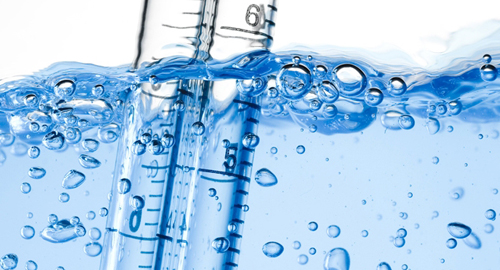The Cutting Edge of Medical Technology Content, Community & Collaboration

The basic reason for which analytical methods and procedures need to be validated is to ensure that analytical data have consistency, accuracy and reliability. This becomes possible when laboratories employ proper scientific methods and procedures and validate analytical methods and procedures. This is the only means to ensure that the analytical data are reliable, consistent and accurate.
The aim of doing so is to substantiate the suitability of intended use of a particular test. It also confirms that the quality, purity, identity and strength parameters required for a product produced in the laboratory are fulfilled in the required and set measure.
The acute need for validation of analytical data
A number of reasons can be ascribed for why analytical data has to be validated for the criteria described above:
- The quality of the data is best indicated and assessed by validation;
- This is a means to ensure the trustworthiness of the analytical data;
- All these steps – validation, verification and transfer of analytical methods -are set out by regulatory the different regulatory bodies such as the FDA and the EMA, and standards such as the USP and ICH requirements, and are thus part of regulatory requirements.
Method validation and compendial methods

Lately, regulatory agencies and industry task forces have been taking a more than cursory interest in method validation. The FDA, as well as the EMA, have recently come up with guidelines on method validation and transfer. Also, USP has proposed new chapters for approaches to the following important areas:
- Integrated validation
- Verification and transfer of analytical procedures
- Equivalency testing and for statistical evaluation.
Compendial methods
That compendial methods are verified needs to be demonstrated in two aspects:
- The suitability of laboratories to successfully run the method, and
- To demonstrate through testing that transfer of methods, when carried on between laboratories, is successful. When a laboratory intends to use an alternative method in place of a compendial method, verification of compendial measures should establish the equivalency of the alternative method.
Complete learning on validation, verification and transfer of analytical methods

All the issues relating to validation, verification and transfer of analytical methods will be taught during a two-day seminar from GlobalCompliancePanel, a leading provider of professional trainings for all the areas of regulatory compliance. Ludwig Huber, the director and editor of Labcompliance, the global online resource for validation and compliance and highly respected author of several books on compliance, will be Director at this seminar.
Interested in gaining complete knowledge of all areas relating to validation, verification and transfer of analytical methods? Then, please register for this seminar by visiting Ensuring the accuracy, reliability and consistency of analytical da....
This course has been pre-approved by RAPS as eligible for up to 12 credits towards a participant’s RAC recertification upon full completion.
Meaningful learning over two days

Dr. Huber will familiarize participants of this event with the background needed for getting a proper understanding of the requirements that need to go into validation, verification and transfer of analytical methods. The strategies needed for this, which he will explain, will constitute an even more significant learning.
The Director of this seminar will provide tools to implement most critical requirements, along with templates and examples for developing inspection-ready documentation. At this highly interactive seminar, Dr. Huber will augment the workshop with exercises into and between the presentations. Around half of the total time will be dedicated to practical sessions with real life examples.
Participants will also be offered a variety of tools that the Director of this seminar will offer them, such as SOPs, validation examples and checklists. All of these will be made readily available on a dedicated website, and can be used to easily implement the learning gained in the course.
Views: 17
Comment
© 2025 Created by CC-Conrad Clyburn-MedForeSight.
Powered by
![]()
You need to be a member of MedTech I.Q. to add comments!
Join MedTech I.Q.